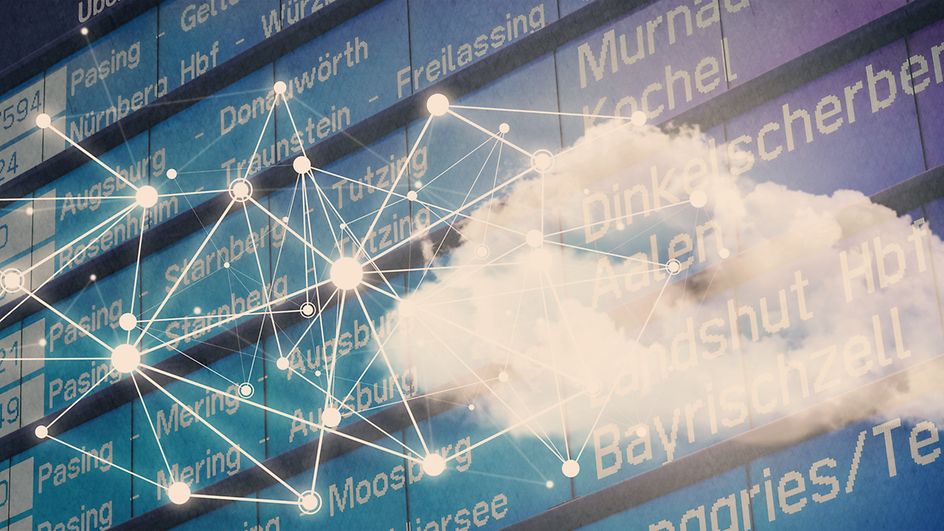Interview
Article: The future lies in the cloud
10/2020 – Over the past three and a half years, Deutsche Bahn (DB) has migrated its IT environment from the Group’s own data centre to the cloud. Several hundred applications, including the ticket sales systems and one of the largest SAP landscapes in Europe, were migrated during ongoing operations. One of the largest IT projects in the rail industry has now been completed in record time, two years ahead of schedule. We asked Christa Koenen how DB will benefit from the cloud. The IT manager answers four questions on the company’s Cloud First strategy.
Ms Koenen, why is DB pursuing a Cloud First strategy?CHRISTA KOENEN: The railway is the backbone of green mobility in Germany. We transport millions of people from A to B every day. For reliable rail operations, we need a highly available and flexible “elastic” IT infrastructure. The cloud architecture lays the foundation for this with IT resources, such as computing power, that can be adapted quickly and dynamically. It has also made us much faster. We can now provide software releases and IT infrastructure in the shortest possible time. But there is more to it than pure IT operations. The aim is to make digital innovations, such as artificial intelligence or platform technologies, available as quickly as possible. Our consistent cloud approach enables us to react immediately to the latest developments and leverage the benefits of greater flexibility and performance plus state-of-the-art technology.
"For reliable rail operations, we need a highly available and flexible ‘elastic’ IT infrastructure."

How do travellers benefit from the cloud?CHRISTA KOENEN: Say we launch a new discount ticket campaign. This would prompt a sudden increase in traffic on bahn.de and DB Navigator from customers wanting to buy lower-priced tickets. The cloud automatically adjusts our sales system capacity in real time as the load increases. We can access as much additional computing capacity as necessary in a matter of seconds. Passengers benefit here because the systems run reliably even under extreme load conditions. This is also particularly important when unforeseen events occur, such as disruptions or storms. In such cases, the need for information rises dramatically, prompting a significant increase in the number of people accessing timetable information. Another benefit for passengers is faster integration of the latest developments and services, such as new payment services.
What can we expect after the successful cloud migration?CHRISTA KOENEN: The migration is only the first step. We are ultimately working towards ‘Cloud Only’. Cloud services will be the basis for all of our current and future applications. In the future, we will also develop in the cloud and change our organisational structure to ensure that we are able to deliver faster and more in line with demand. We are therefore moving in the direction of DevOps, a widely used IT approach to enable more efficient cooperation between all software development departments. We will be using the cloud infrastructure as the basis for establishing higher-value services, such as AI, IoT and data lakes, on technology platforms. The flexibility that this offers within the Group enables us to pave the way for greater speed while maintaining our quality, safety and compliance standards.
How will IT look in the future?CHRISTA KOENEN: In 2016, DB decided to sell its data centre and move fully to the cloud. This decision was courageous and innovative at the time. This is still true today: we remain a cloud pioneer among German corporate groups. There was always more to it than purely IT operations. The main motivation was to drive forward the digitalisation of Deutsche Bahn. The move to the cloud also marks a change in the role of DB Systel. We want to focus on supporting DB’s core business. Our partners Amazon Web Services and Microsoft Azure are experts in IT infrastructure services. We are experts in railways and digitalisation. Over the long term, our aim is to reduce IT complexity for employees in the functional departments such that they are able to build customer-centric solutions themselves from a standardised toolkit, even without extensive IT expertise and programming skills. IT will therefore become increasingly integrated with the business. The role of IT is thus evolving from provider to integrator and business enabler.


